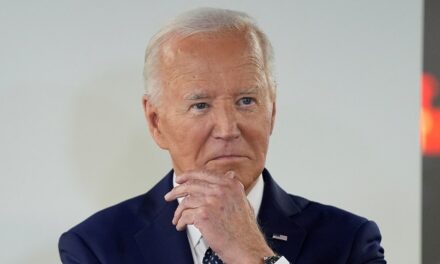In a surprising statement that has sparked considerable conversation among political analysts and the public, Governor Tim Walz of Minnesota recently revealed his belief that Vice President Kamala Harris selected him as her running mate primarily to appeal to a demographic of white men. This assertion, made during a speech at a recent political rally, sheds light on the complex dynamics at play within the current administration.
Walz’s comments, which can be perceived as both a reflection on identity politics and an observation on voter demographics, suggest he sees himself as a bridge between Harris and a critical voter base that has historically leaned towards Republican candidates. In a political environment where understanding and catering to diverse constituencies is vital, Walz believes that his selection would help to facilitate discussions and outreach to white male voters.
At the rally, Walz noted, “I think she picked me not only because of what I bring to the table but also to engage in what I like to call ‘code talk’ with white guys.” While some attendees laughed at the comment, others viewed it with a degree of seriousness, recognizing the implications of Walz’s perspective.
Political observers are divided in their interpretations of Walz’s remarks. Some argue that he is keenly aware of the challenges that the Democratic Party faces in attracting a diverse voter base, while others criticize his framing as oversimplifying complex social issues. In the American political arena, where demographic shifts are becoming more pronounced, the need to communicate effectively across various groups cannot be overstated.
The term “code talk” has been used in various contexts throughout history, often referring to the practice of using specific phrases or language that resonate with particular audiences. Walz’s use of the term suggests that he believes there are unique communication styles or cultural references that play a significant role in engaging white male voters, a demographic that has shown to be particularly fragmented in recent election cycles.
Supporters of Walz argue that his experience as governor places him in a unique position to understand the nuances of voter preferences and to effectively reach out to different segments of society. They point to his track record of working across the aisle to pass legislation, suggesting that his collaborative nature can help bridge the differences between liberal and conservative voters.
Critics, however, caution against the potential pitfalls of relying on identity politics to navigate such discussions. They believe that reducing the complex motivations of voters to simplistic terms can lead to further polarization rather than fostering genuine dialogue. As America moves forward, the challenge remains for leaders to engage across lines of race, gender, and ideology without falling into reductive stereotypes.
Walz’s assertion also raises questions about the broader strategy of the Democratic Party in the lead-up to the next presidential election. The party has often found itself at odds with certain demographic groups, particularly in rural areas, where traditional Democratic support has waned. By selecting individuals like Walz who can potentially appeal to white male voters, the party may be attempting to consolidate its base while also making inroads into previously unfavorable territory.
The 2024 election is shaping up to be an important litmus test for the current administration’s ability to connect with voters across the ideological spectrum. With significant issues such as economic disparity, healthcare, and social justice at the forefront of voters’ minds, the need for an effective and inclusive strategy has never been more pressing.
Political analysts believe that candidate selections and messaging will be pivotal in determining the outcomes in swing states, particularly those where the demographic makeup is a reflection of the broader national trends. With figures such as Walz entering the conversation, the possibility of a more nuanced approach to voter engagement emerges.
As the race progresses, the Biden administration is likely to face scrutiny over its engagement with various demographic groups. Vice President Harris, being the first Black woman in such a high position, represents a significant step forward in terms of diversity, but her ability to resonate with all voters is a different challenge altogether. The dialogue around identity and representation is expected to dominate both campaigns and discussions in the media.
Walz’s comments may also lead to a broader conversation within the Democratic Party about the role of identity in campaigns and governance. His candid acknowledgment of the political landscape suggests that the party is still grappling with how to authentically connect with all voters, especially those who may feel alienated or unheard.
In the coming months, it will be essential for both Walz and Harris to navigate these discussions carefully, ensuring that their approach promotes unity without sacrificing the urgency of addressing the pressing issues facing America today. The need for a dialogue that encompasses various identities and experiences is fundamental for the health of the democratic process.
As both parties prepare for what promises to be a contentious election cycle, voters will be watching closely to see how candidates handle the nuanced landscape of identity politics. With leaders like Tim Walz stepping into the conversation, the hope is that it will lead to a more inclusive political discourse that respects and acknowledges the diverse fabric of America.
In conclusion, while Walz’s comments about being Harris’s choice to ‘code talk’ to white men may seem provocative or controversial, they reveal a broader trend in American politics where bridging divides is becoming increasingly essential. The success of future campaigns may hinge on the ability to foster genuine conversations that transcend identity boundaries and unite voters around shared values and common goals.
As the nation gears up for the elections ahead, the collaboration between leaders like Harris and Walz could pave the way for new strategies in engagement, creating an opportunity for meaningful connections that resonate with voters across all demographics.
































